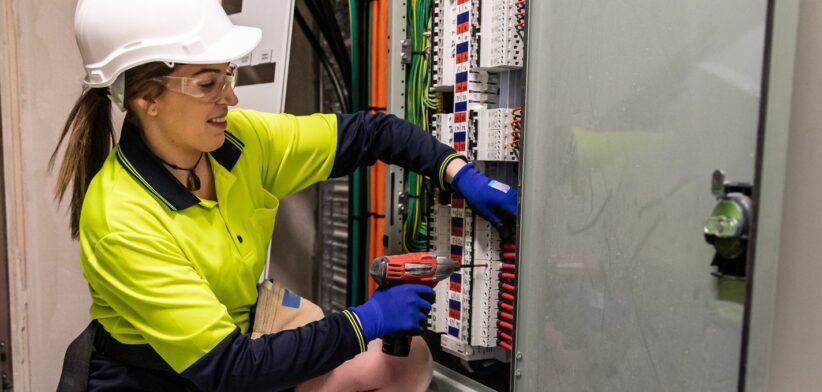Electrical jobs are predicted to double in five years, with calls to lift training and diversity in the sector to overcome a skills shortage.
A new report from the Institute for Sustainable Futures (ISF) showed the potential skills shortfall could threaten the transition to clean energy.
Jay Rutovitz, the Chief Investigator for the report which was a collaboration with the Australian Energy Market Operator, said electricity sector jobs were forecast to double by 2029, an increase of 33,000.
Mr Rutovitz said the majority of the new jobs would be in renewable energy, with wind, solar, and battery storage leading the charge.
He said the report highlighted the growing importance of operations and maintenance roles, which were expected to account for 65 percent of the electricity sector workforce by 2033.
“The rapid expansion of the renewable energy sector will see a significant strain on the labour market.”
Mr Rutovitz said the report identified several key challenges, including:
- Skills shortages: The demand for a range of skilled workers, including electricians, mechanical trades, and engineers will increase significantly, potentially causing project delays.
- Boom-bust cycles: The construction-heavy nature of renewable energy projects will see a highly variable workforce with a risk of boom-bust cycles. This reduces national, regional and local opportunities as it becomes much harder to train and retain a stable workforce.
- Regional challenges: Many renewable energy projects are located in remote areas, which will be competing for labour with infrastructure projects in big cities.
“We need to act now to address the potential skills shortages to make sure we can deliver this transition and realise the benefits.”
Mr Rutovitz said the report made several recommendations to address these challenges, including:
- Smoothing the development pipeline: The Federal and State governments should implement policies for a smoother development of renewable energy projects over time.
- The Australian Skills Guarantee for 1-in-10 workers on publicly funded projects to be apprentices or trainees should be extended to cover all energy infrastructure involving public finance or procurement.
- The energy sector needs to attract a more diverse workforce, including more women and First Nations people.








